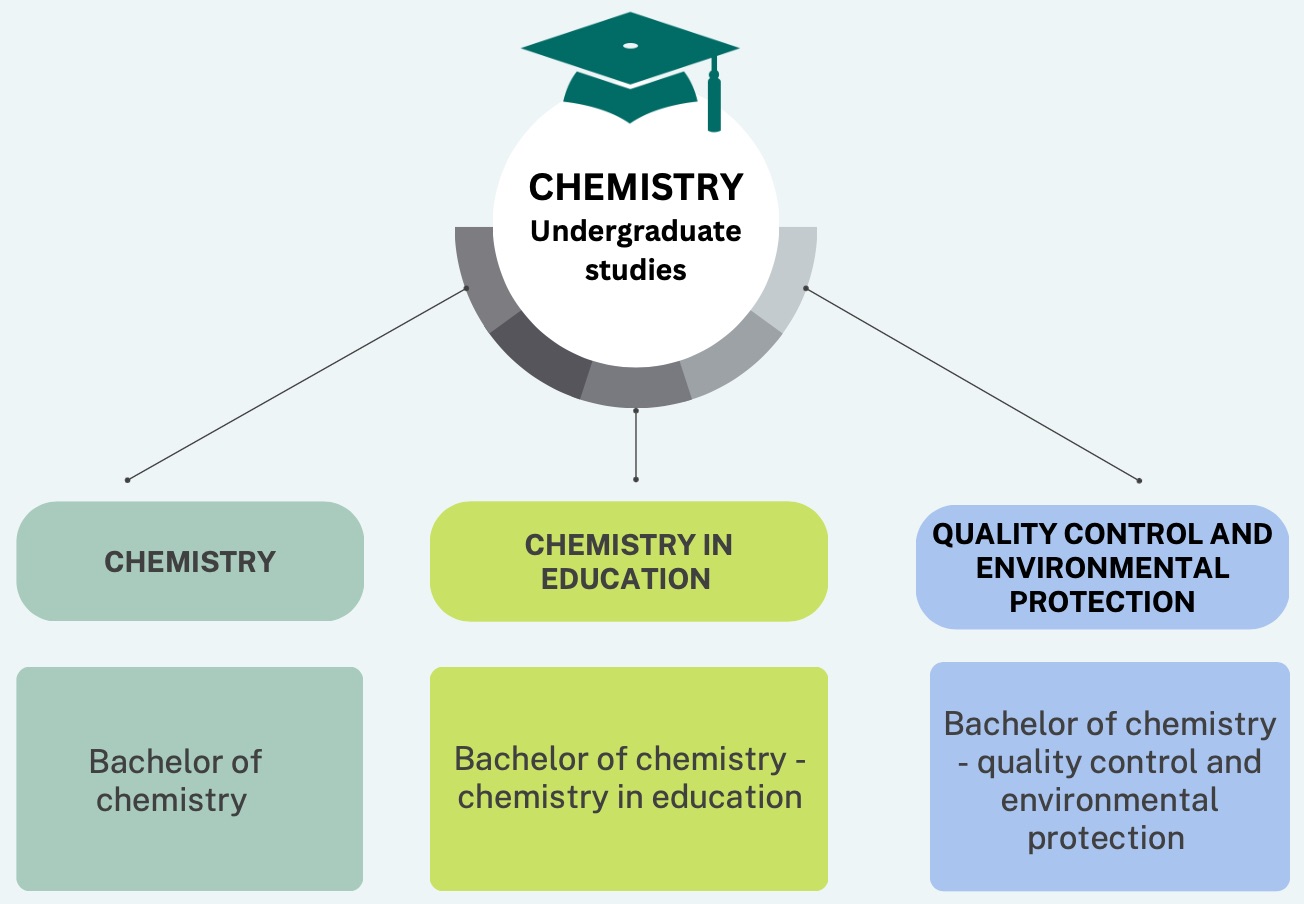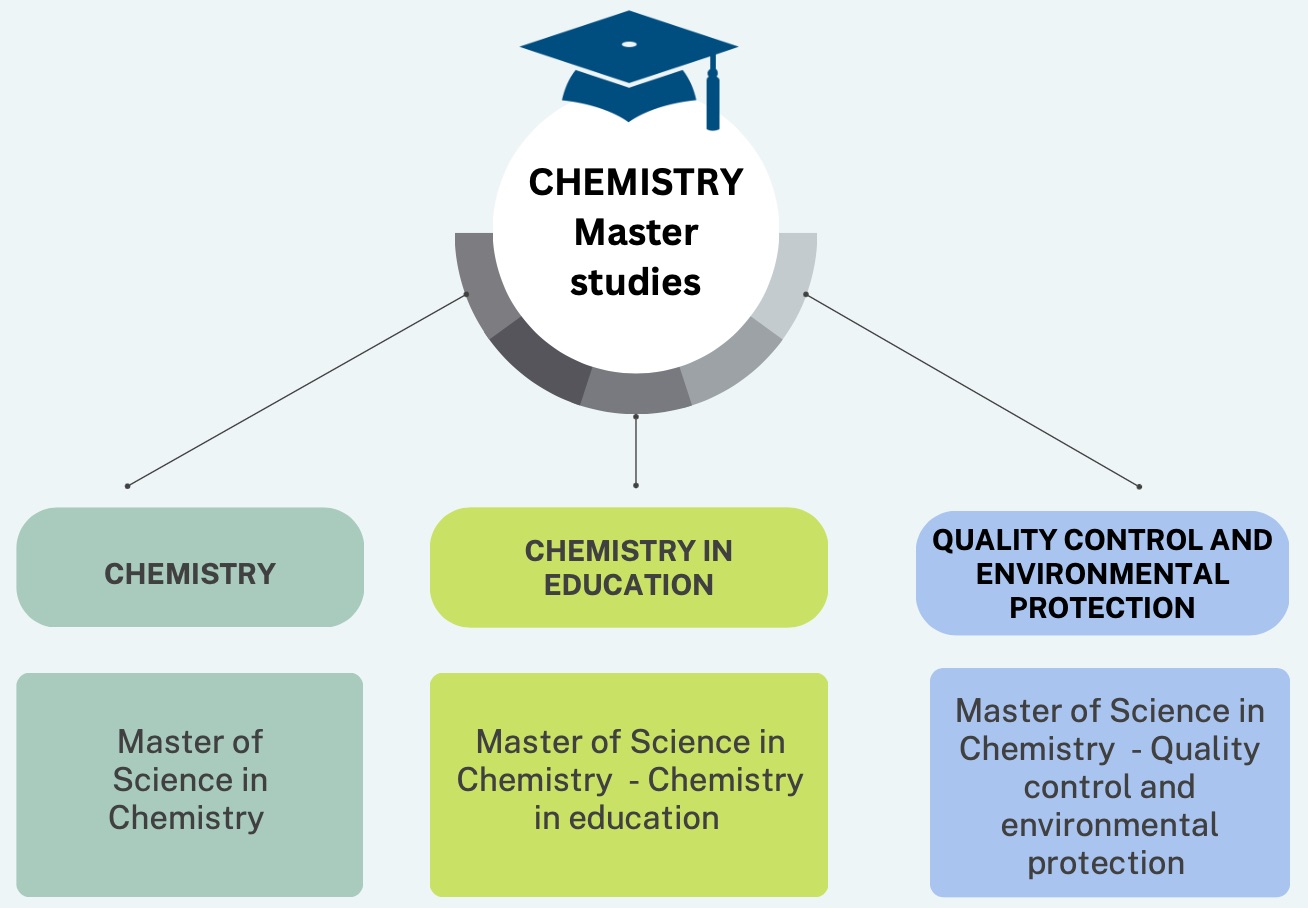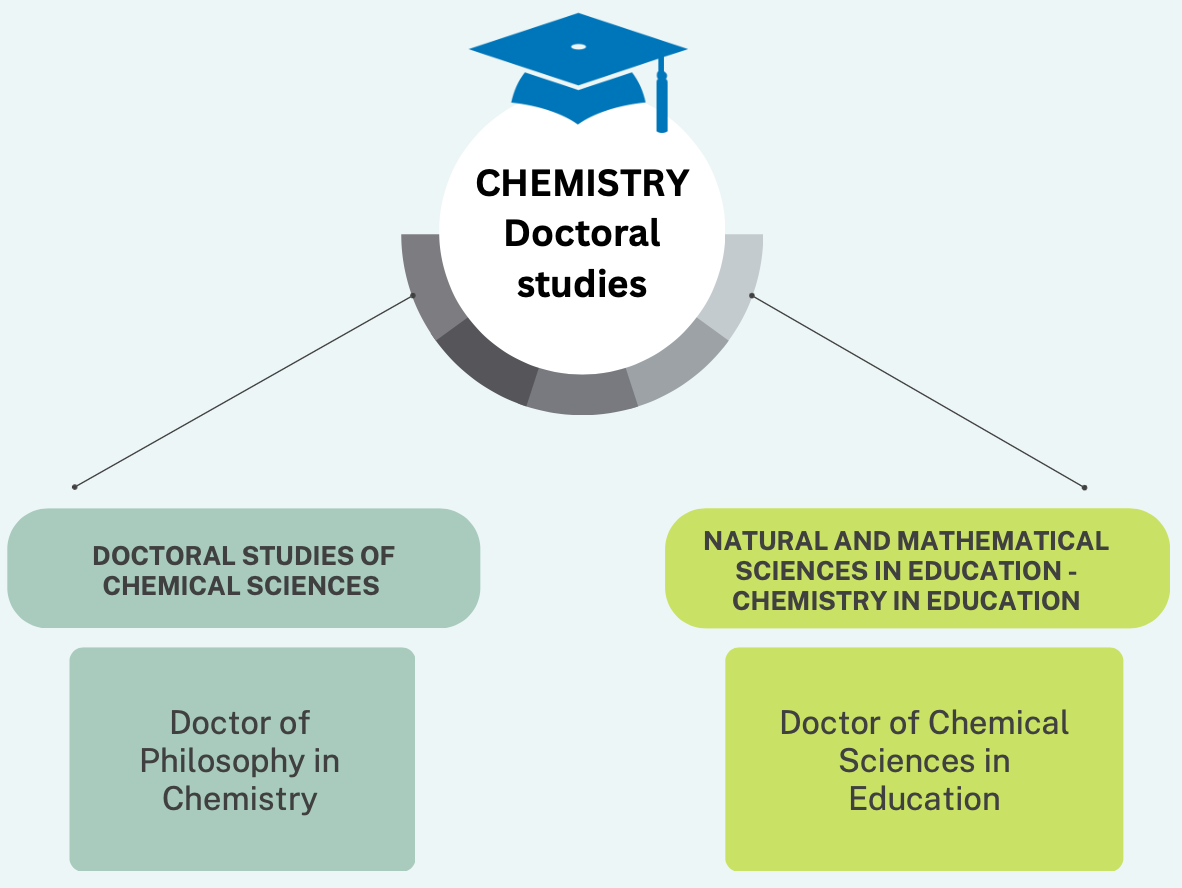The study of chemistry is organised and carried out through three study cycles
Undergraduate studies
The Undergraduate studies last four years (eight semesters) and are evaluated with 240 ECTS points. There are three study programs with the following respective degrees:
- Chemistry – Bachelor of Chemistry,
- Quality Control and Environmental Protection – Bachelor of Chemistry – Quality control and environmental protection,
- Chemistry in Education – Bachelor of chemistry – Chemistry in education.

Baccalaureate/Bachelor of Chemistry – can apply their knowledge primarily in chemical laboratories of various profiles and purposes (research and development, quality control, standardization, process monitoring, etc.), i.e. in the pharmaceutical, food, processing, paper and pulp industry, industry for the processing of mineral oils, the automotive industry, the electrical industry and other branches of industry.
Baccalaureate/Bachelor of Chemistry – quality control and environmental protection, can apply their knowledge in chemical testing laboratories of various purposes, production facilities, as well as in control of various types of products and protection of the environment, guided by the relevant national and European legislation that defines: quality system in chemical testing laboratories, test standards and quality standards. It can also participate in national institutions that deal with issues of product quality and environmental protection, and the adoption of adequate regulations in those areas.
Baccalaureate/Bachelor of Chemistry – chemistry in education – can be employed in all primary and secondary schools and teach all subjects from the field of chemistry (general, inorganic, analytical, physical, organic chemistry, biochemistry, radiochemistry, applied chemistry and others).
Master studies
Master studies last one year (two semesters) and are evaluated with 60 ECTS points.
Master studies offer three study programs with the following respective degrees:
- Chemistry – Master of science in chemistry,
- Quality Control and Environmental Protection – Master of science in chemistry – Quality control and environmental protection,
- Chemistry in Education – Master of science in chemistry – Chemistry in education.

Master of science in chemistry – can work as a consultant and expert in ministries, regional administrative bureaus, national and international (European) institutions (on material testing, in criminal investigations and forensic medicine, environmental protection,…), or in very narrowly specialized fields such as scientific associations, museum science, archeology and others. The acquired knowledge in the methodology of analytical approaches to sample preparation and bioinformatics enables him to independently process his experimental data and search databases. He is qualified to participate in research, to perform standard biochemical laboratory procedures and to use laboratory instruments, and to present his results through scientific and professional papers, in written and oral form. Under certain conditions, he can also work at higher education institutions.
Master of science in chemistry – Quality Control and Environmental Protection – can work independently in chemical laboratories of various purposes, especially in research and professional laboratories for the environment, research and development, quality control of various types of products, standardization, process monitoring, environmental monitoring, accredited laboratories, etc. In addition, he can work as a consultant and expert in ministries, regional administrative bureaus, national and international (European) institutions. He is able to participate, independently or as part of a team, in research projects related to the environment. He has experience in implementing standard methods for determining the quality of different types of products and the level of contamination of environmental spheres, from the initial sampling step to the issuance of reports, applying the relevant settings of metrology in chemistry. Under certain conditions, he can also work at higher education institutions.
Master of science in chemistry – Chemistry in education – can be employed in all primary and secondary schools and teach all subjects from the home field of chemistry, such as general, inorganic, analytical, physical, organic chemistry, biochemistry, radiochemistry, applied chemistry and others. He can also work in educational and pedagogical institutes and ministries of education. Under certain conditions, he can also work at higher education institutions.
Doctoral studies
Doctoral studies of studies lasts three years (six semesters) and is evaluated with 180 ECTS points.
The study programs of the third cycle are realized through a doctoral study – general course and a doctoral study – natural and mathematical sciences in education, a study program in chemistry in education, and upon completion of the studies, the academic titles of Doctor of Chemical Sciences and Doctor of Chemical Sciences in Education are obtained.


